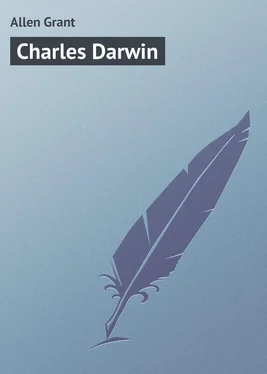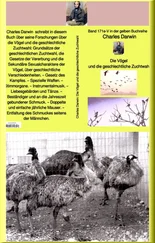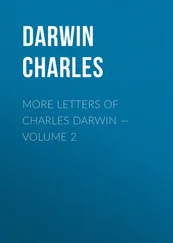Grant Allen - Charles Darwin
Здесь есть возможность читать онлайн «Grant Allen - Charles Darwin» — ознакомительный отрывок электронной книги совершенно бесплатно, а после прочтения отрывка купить полную версию. В некоторых случаях можно слушать аудио, скачать через торрент в формате fb2 и присутствует краткое содержание. Жанр: foreign_prose, на английском языке. Описание произведения, (предисловие) а так же отзывы посетителей доступны на портале библиотеки ЛибКат.
- Название:Charles Darwin
- Автор:
- Жанр:
- Год:неизвестен
- ISBN:нет данных
- Рейтинг книги:4 / 5. Голосов: 1
-
Избранное:Добавить в избранное
- Отзывы:
-
Ваша оценка:
- 80
- 1
- 2
- 3
- 4
- 5
Charles Darwin: краткое содержание, описание и аннотация
Предлагаем к чтению аннотацию, описание, краткое содержание или предисловие (зависит от того, что написал сам автор книги «Charles Darwin»). Если вы не нашли необходимую информацию о книге — напишите в комментариях, мы постараемся отыскать её.
Charles Darwin — читать онлайн ознакомительный отрывок
Ниже представлен текст книги, разбитый по страницам. Система сохранения места последней прочитанной страницы, позволяет с удобством читать онлайн бесплатно книгу «Charles Darwin», без необходимости каждый раз заново искать на чём Вы остановились. Поставьте закладку, и сможете в любой момент перейти на страницу, на которой закончили чтение.
Интервал:
Закладка:
But in his alternative character of philosophic biologist, rejected by the age which swallowed his poetry all applausive, Erasmus Darwin is well worthy of the highest and deepest respect, as a prime founder and early prophet of the evolutionary system. His 'Zoonomia,' 'which, though ingenious, is built upon the most absurd hypothesis' – as men still said only thirty years ago – contains in the germ the whole theory of organic development as understood up to the very moment of the publication of the 'Origin of Species.' In it Dr. Darwin calls attention to 'the great changes introduced into various animals by artificial or accidental cultivation,' a subject afterwards fully elucidated by his greater grandson in his work on 'The Variation of Animals and Plants under Domestication.' He specially notes 'the immense changes of shape and colour' produced by man in rabbits and pigeons, the very species on which Charles Darwin subsequently made some of his most remarkable and interesting observations. More than any previous writer, Erasmus Darwin, with 'prophetic sagacity,' insisted strongly on the essential unity of parent and offspring – a truth which lies at the very base of all modern philosophical biology. 'Owing to the imperfection of language,' wrote the Lichfield doctor nearly a hundred years ago, 'the offspring is termed a new animal, but is in truth a branch or elongation of the parent, since a part of the embryon-animal is or was a part of the parent, and therefore may retain some of the habits of the parent system.' He laid peculiar stress upon the hereditary nature of some acquired properties, such as the muscles of dancers or jugglers, and the diseases incidental to special occupations. Nay, he even anticipated his great descendant in pointing out that varieties are often produced at first as mere 'sports' or accidental variations, as in the case of six-fingered men, five-clawed fowls, or extra-toed cats, and are afterwards handed down by heredity to succeeding generations. Charles Darwin would have added that if these new stray peculiarities happened to prove advantageous to the species they would be naturally favoured in the struggle for existence, while if they proved disadvantageous, or even neutral, they would die out at once or be bred out in the course of a few crosses. That last truth of natural selection was the only cardinal one in the evolutionary system on which Erasmus Darwin did not actually forestall his more famous and greater namesake. For its full perception, the discovery of Malthus had to be collated with the speculations of Buffon.
'When we revolve in our minds,' says the eighteenth century prophet of evolution, 'the great similarity of structure which obtains in all the warm-blooded animals, as well quadrupeds, birds, and amphibious animals, as in mankind; from the mouse and bat to the elephant and whale; one is led to conclude that they have alike been produced from a similar living filament. In some this filament in its advance to maturity has acquired hands and fingers with a fine sense of touch, as in mankind. In others it has acquired claws or talons, as in tigers and eagles. In others, toes with an intervening web or membrane, as in seals and geese. In others it has acquired cloven hoofs, as in cows and swine; and whole hoofs in others, as in the horse: while in the bird kind this original living filament has put forth wings instead of arms or legs, and feathers instead of hair.' This is a very crude form of evolutionism indeed, but it is leading up by gradual stages to the finished and all-sided philosophy of physical life, which at last definitely formulates itself through the mouth of Charles Darwin. We shall see hereafter wherein Erasmus Darwin's conception of development chiefly failed – in attributing evolution for the most part to the exertions and endeavours of the animal itself, rather than to inevitable survival of the fittest among innumerable spontaneous variations – but we must at least conclude our glimpse of his pregnant and suggestive work by quoting its great fundamental aperçu : – 'As the earth and ocean were probably peopled with vegetable productions long before the existence of animals, and many families of these animals long before other families of them, shall we conjecture that one and the same kind of living filament is and has been the cause of all organic life?'
A few lines from the 'Temple of Nature,' one of Erasmus Darwin's poetic rhapsodies, containing his fully matured views on the origin of living creatures, may be worth reproduction in further elucidation of his philosophical position: —
'Organic life beneath the shoreless waves
Was born, and nursed in ocean's pearly caves;
First forms minute, unseen by spheric glass.
Move on the mud, or pierce the watery mass;
These, as successive generations bloom,
New powers acquire, and larger limbs assume;
Whence countless groups of vegetation spring,
And breathing realms of fin and feet and wing.'
Have we not here the very beginnings of Charles Darwin? Do we not see, in these profound and fundamental suggestions, not merely hints as to the evolution of evolution, but also as to the evolution of the evolutionist?
On the other hand, though Erasmus Darwin defined a fool to his friend Edgeworth as 'a man who never tried an experiment in his life,' he was wanting himself in the rigorous and patient inductive habit which so strikingly distinguished his grandson Charles. That trait, as we shall presently see, the biological chief of the nineteenth century derived in all probability from another root of his genealogical tree. Erasmus Darwin gave us brilliant suggestions rather than cumulative proof: he apologised in his 'Zoonomia' for 'many conjectures not supported by accurate investigation or conclusive experiments,' Such an apology would have been simply impossible to the painstaking spirit of his grandson Charles.
Erasmus Darwin was twice married. His first wife was Mary, daughter of Mr. Charles Howard, of Lichfield, and it was her son, Robert Waring Darwin, who became the father of our hero, Charles. It is fashionable to say, in this and sundry other like cases, that the mental energy skips a generation. People have said so in the case of that intermediate Mendelssohn who was son of Moses Mendelssohn, the philosopher, and father of Felix Bartholdy Mendelssohn, the composer – that mere link in a marvellous chain who was wont to observe of himself in the decline of life, that in his youth he was called the son of the great Mendelssohn, and in his old age the father of the great Mendelssohn. As a matter of fact, one may fairly doubt whether such a case of actual skipping is ever possible in the nature of things. In the particular instance of Robert Waring Darwin at least we may be pretty sure that the distinctive Darwinian strain of genius lay merely latent rather than dormant: that it did not display itself to the world at large, but that it persisted silently as powerful as ever within the remote recesses of the thinking organism. Not every man brings out before men all that is within him. Robert Waring Darwin was a physician at Shrewsbury; and he attained at least sufficient scientific eminence in his own time to become a Fellow of the Royal Society, in days when that honour was certainly not readily conferred upon country doctors of modest reputation. Charles Darwin says of him plainly, 'He was incomparably the most acute observer whom I ever knew.' It may well have been that Robert Darwin lived and died, as his famous son lived for fifty years of his great life, in comparative silence and learned retirement; for we must never forget that if Charles Darwin had only completed the first half century of his laborious existence, he would have been remembered merely as the author of an entertaining work on the voyage of the 'Beagle,' a plausible theory of coral islands, and a learned monograph on the fossil barnacles. During all those years, in fact, he had really done little else than collect material for the work of his lifetime. If we judge men by outward performance only, we may often be greatly mistaken in our estimates: potentiality is wider than actuality; what a man does is never a certain or extreme criterion of what he can do.
Читать дальшеИнтервал:
Закладка:
Похожие книги на «Charles Darwin»
Представляем Вашему вниманию похожие книги на «Charles Darwin» списком для выбора. Мы отобрали схожую по названию и смыслу литературу в надежде предоставить читателям больше вариантов отыскать новые, интересные, ещё непрочитанные произведения.
Обсуждение, отзывы о книге «Charles Darwin» и просто собственные мнения читателей. Оставьте ваши комментарии, напишите, что Вы думаете о произведении, его смысле или главных героях. Укажите что конкретно понравилось, а что нет, и почему Вы так считаете.












